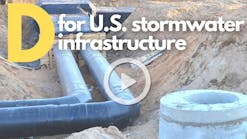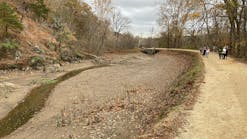The U.S. Environmental Protection Agency (EPA) announced a Federal Facility Compliance Agreement with the U.S. Marine Corps to make improvements related to storm water discharges at the Marine Corps Base Hawaii (MCBH).
MCBH is located on the Mokapu Peninsula of Kaneohe, Oahu.
“This Agreement marks a major milestone in protecting Hawaii’s water quality from damage caused by military storm water discharges,” said EPA Pacific Southwest Regional Administrator Martha Guzman in the EPA news release. “By addressing significant deficiencies related to its storm water program, the Marine Corps will protect cultural and recreational waters including Kaneohe Bay, Kailua Bay and the Nu‘upia Pond.”
According to EPA, the storm water system which the agreement pertains to is regulated by the Hawai’i Department of Health (DOH) under a National Pollutant Discharge Elimination System (NPDES) Municipal Separate Storm Sewer System permit as authorized under the Clean Water Act.
EPA and Hawai’i DOH conducted an audit of MCBH’s compliance with its NPDES permit in 2020. The audit discovered that the facility: exceeded discharge limits; and failed to submit all discharge monitoring data required by the permit.
According to EPA, the Agreement will require MCBH to:
- Carry out a plan to prioritize storm water outfalls for screening to effectively reduce trash discharges;
- Provide staff with relevant training to build awareness about storm water requirements and reduce unauthorized discharges throughout the storm system;
- Evaluate appropriate projects to include systems that use or mimic natural processes that result in better storm water management and natural areas that provide habitat, flood protection, and cleaner water;
- Develop a Construction Best Management Practices Field Manual to establish consistency in implementation and construction project oversight;
- Improve detection and elimination of non-storm water wastewater entering into and discharging out of their storm water system;
- Establish an asset management program to track, maintain and replace key components to their storm water system; And
- Hire a third-party to conduct an audit of MCBH’s storm water program with a focus on public outreach and education, pollution prevention and good housekeeping, and industrial/commercial management.






